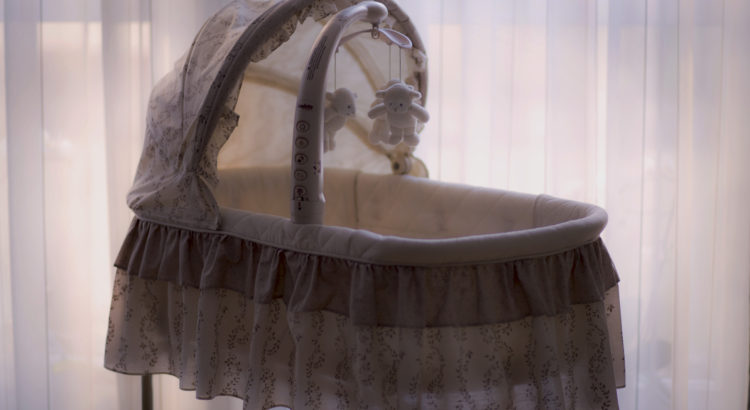It will never be determined which kind of grief is more difficult. All losses are painful! However, sudden death is recognized as one of the most difficult to recover from because of the tremendous shock involved. The difference between a sudden death and an anticipated death can be the impact it has upon the survivor’s ability to cope and go on with their life. You most likely feel overwhelmed! The reality of what happened may be more than you can believe. It is common to think there must have been a terrible mistake or that you will soon wake up from this bad dream. You may experience a feeling of numbness that can last a brief time or up to several weeks or months. There also can be extreme feelings of bewilderment and anxiety because you had no time to prepare for a world that will never be as it was before. You have not been given time to make changes in yourself or your expectations about life in the future. It would not be uncommon if you feel your world is out of control and you don’t know where to begin putting it back together. Please try to be patient and gentle with yourself in the weeks and months ahead. Intellectually you may recognize that the death occurred, but accepting it can be very difficult. You may relive the events surrounding the death over and over looking at the time leading up to the death event. You may search again and again for clues that could have indicated what was to come. You may search to see if there were ways the death could have been prevented. You may feel guilty that “If only you had….” Then there is always the question, “Why?” For some individuals, this simple and complex question may have to be asked repeatedly until there comes a realization that all of our lives have unanswered whys. If a sudden death was caused by an accident or disaster like a flood, fire, tornado, etc., you will have to cope with the overpowering sense of injustice and unfairness that such deaths bring. Legal and insurance proceedings often interfere with your bereavement by causing a delay in your grief reaction. Your energies are diverted to completing the necessary legalities. It is not uncommon to feel vulnerable, fearful and insecure during this time. Life is not always orderly and often there is no one to blame. No chance for closure is probably the most difficult issue faced by those who have suddenly lost a loved one. You simply did not have a chance to say goodbye. There was no chance to complete unfinished business. This may add to your burden as you think of what you could have or should have done or said to your loved one. You may have wanted to explain something or apologize for something, but most often you wish you could have had just one brief moment to express your love and let that person know what they meant to you. Those who have traveled this painful path before you say there is one way; take the negative in life and turn it into a positive for the future. They know, only too well, that tomorrow is not promised to anyone no matter what their age. This fact has helped them put into prospective what is important in life and what is trivial. Being mindful of what is important has prompted them to not put off until tomorrow those things they feel they should do and say today. Quite possibly this is the greatest living memorial each survivor can make to their lost loved one.
Month: June 2021

Loss of a Loved One from War
Your worst fears become reality when you are notified of a loved one’s death as a result of war in a far away place. You undoubtedly hoped and prayed for the safety of this special person since his/her departure for military service. Dreaded thoughts of dangers he/she would face in the line of duty probably increased as peace efforts failed and the world moved closer to war. Now you must face the fact that you life is forever changed because of their death. One of the many things you need after the funeral is information about grief – life’s most painful emotional adjustment to loss. Grieving is a normal, healthy activity. Although grief is a universal experience, no two people grieve the same, even in the same family. Like a fingerprint, each person’s grief has characteristics all its own. You must grieve in order to survive. Grief is a process that takes place over a span of time. Expressing you feelings honestly and openly to supportive family and friends will help you to feel better. Be sure to include children and young adults in discussions. Be gentle and truthful about what happened and encourage children to share their feelings. Hug each other and together reach out to those who want to help you. It is difficult to begin grieving when there is uncertainty about the circumstances of death. In war situations, there can be a scarcity of information for varying periods of time. Seek answers to all your questions. If and when you want to hear from those who were around at the time of your loved one’s death, you could write his/her friends in the unit. Ask them to share with you their story of what happened. It is better to know what the truth than to imagine what might have happened. Undoubtedly you will ask “Why war?” “Why was my loved one killed while others were spared?” Searching for answers is a normal part of the grief process. At some point you may need to accept that fact that some questions cannot be answered. You may feel incredible anger. This anger may be directed toward Saddam Hussein, war, the military, elected officials, God or even those who seem unaffected by your loss. Hating the enemy is also understandable, yet their loved ones are being killed too. Families on both sides suffer terrible losses in war. Do recognize it is okay to have these feelings and to express them to some understanding person. However, try to channel the energy from your anger into some positive activity. Physical exercise is a great way to dissipate anger. Involve yourself with projects and people. Make a commitment to some action that will help someone else. In helping others you will help yourself. It will seem as if the horror of war is inescapable. Graphic television coverage will bring the war into your living room. Newspapers will be filled with pictures and descriptions of each days losses and victories. Everyone will be talking about what is happening. There may be no respite from hearing about war. It may comfort you to know so many people care about all the details. On the other hand, and solitude you need. Do whatever you know is right for you. Find others in your community who have been touched by this war. Attend the support groups that have been established for the families of military personnel. Talk with them and share your story. They will listen and understand. You will find that grief shared is truly grief diminished Most people believe that military service is the ultimate expression of patriotism. When your community learns of your loved one’s death, you will undoubtedly receive support, even from strangers. Your grief is a part of the collective grief of a nation. You need not suffer in isolation if you accept the strength of human solidarity. Recovering from the loss of a loved one from war will require patience, work and courage. Grief often takes much longer than you or others in your life expect. As you adapt to life without this person, strive to remember the best from the past. Know there can be a time when your sorrow will be replaced by an affirmation of life. The ultimate lesson to be learned from any tragedy is that life is precious. Each and ever day is a gift and each and every person is special. Peace in the world may not be possible, but finding peace within yourself is. Make that you goal. For additional military assistance, contact your casualty assistance officer or Family Assistance Center. Other help may be available from the Red Cross, your funeral director and clergy person.

When a Baby Has Died
When someone close to us dies, the process of grieving is how we begin to untangle the emotional bonds we had formed with that person. Grief is the painful but necessary process that lets us say goodbye. When a baby dies before it is born or soon after birth, parents face a difficult emotional task: they must try to say goodbye to someone they had little chance to know. They must accept that a life has ended, even though it barely began. You will likely experience some of the common reactions of bereavement to your baby’s death. You may go into shock or deny that your baby has died. You will likely become depressed. Even if you were normally a committed, caring person, you would find that you do not care about anything or anyone right now. The grief caused by your baby’s death can take a physical toll. You may lose weight, have difficulty sleeping, become irritable, listless or feel short of breath. There are two normal reactions to death that you will probably experience very acutely: anger and guilt. Because a baby’s death seems so unnatural, there is an especially strong urge to blame someone. You may be very angry with your doctor, hospital or even God. You are likely to feel guilty for many reasons. Parents of unborn babies who die often mistakenly blame themselves for the death. The mother may believe she harmed her baby. Both parents may tell themselves they should have sensed something was wrong and alerted the doctor. You will likely be overcome by a tremendous sense of emptiness. Pregnancy brings with it a number of expectations, dreams and fantasies. Now, after both parents are emotionally preparing to welcome a child into the world, you must instead accept the loss of both the baby and all of your expectations for the future of that child. Unfortunately, you will for a time be constantly reminded of your baby. Your home may be filled with baby clothes, bottles and a crib. You are likely to receive coupons for baby food in the mail and perhaps a free subscription for a baby magazine. Photographers may call and offer to take baby pictures. Just waking past the infant-wear department in a store may initiate tears of mourning. It may be difficult to resolve the grief you feel for the baby you lost. Even before you can accept your baby’s death, you must accept his or her life – the baby’s existence as a person. Remember, no matter how brief your baby’s life, you have just as much right to grieve as any other bereaved parent. Express your feelings. Share them with your partner, your friends and your relatives. Some well-meaning friends may try to comfort you by saying you’ll have another baby, but you know another child cannot replace this baby. Other friends will probably be at a loss for words for you. You can bridge the gap by telling them what you need and how they can help. Most importantly, talk to your spouse. The death of a child can strain a marriage. No two people grieve exactly the same way, and you may find that you and your spouse are on such different emotional wavelengths that communication is difficult. It is important that you set aside time to be alone together to talk about your feelings, cry or simply hold each other. Bereaved parents often find that nothing helps them resolve their grief as much as talking to others who have lived through the loss of a child. There is a wonderful organization called The Compassionate Friends with 575 chapters. You can contact them on the web at compassionatefriends.org, call them toll free at (877) 969-0010 or fax them at (630) 990-0246 to find a local chapter near you.

Loss of a Special Person
There are a number of situations in life where a person may suffer a major loss, but unfortunately, the loss may not be acknowledged by society. These losses may not be perceived as important enough to be mourned for anything but a brief period of time. When the severed relationship is not openly acknowledged, often there are no bereavement rituals to help you cope with the loss. You may miss the confirmation, expression and support people offer others after a death. Whether or not others perceive this loss as significant will not determine whether or not you grieve. Rather, it is the nature and meaning of this particular loss to you that will determine whether you mourn. Relationships with neighbors, colleagues, co-workers, in-laws, a former spouse or close friend are not considered major relationships by many. The loss of a nephew or niece, grandchild, aunt or uncle may also be discounted. Yet, you know the person who died was exceptionally close to you as well as being influential in you life. The deceased can range from being a confidante to being a pivotal person who changed your life. In the best of relationships, this special person may have shared your secrets, challenged your goals and supported your dreams. By virtue of their not being a part of your immediate family, they may have been able to assist you in ways your spouse, parents, children or brothers and sisters could not. They were close enough to be concerned, while distant enough to be somewhat objective and as a result, were very important to you. In many of the above mentioned relationships, a close and sometimes intense attachment has been severed. If you aren’t able to express what you feel, problems in working through your grief can be expected. To avoid these problems, you should never, never hesitate to reach out to others. Find a “safe person”…one who offers little or no advice, but just listens and allows you to express your feelings, cry when you want and laugh when you can. “Safe people” will let you be who you are as you progress through readjustment. They believe every individual possesses an inner strength, an untapped potential, to make it even in the worst of circumstances. They also realize that there is no one “right way” to grieve nor is there a timetable to your grief. It is true that grief shared is grief diminished. However, one cannot understand the full meaning of your loss unless you share with them what your relationship with the deceased meant to you. What is the unique nature and meaning of your loss and the relationship that has been severed? Your grief depends upon what you perceive yourself to have lost. Each loss must be viewed from the bereaved person’s own frame of reference. One cannot use his or her own standards to determine the impact of the loss on another human being; rather, one must try to comprehend what it means specifically to that mourner. For example, a person should not automatically assume that a brother or sister’s death would bring more grief than a friend’s. The death of a friend may carry more impact than that of a sibling if the grieving person has had a more intimate relationship with that friend. Not everyone responds in a similar fashion to the same loss. Not all losses mean the same thing to all people. NEVER DENY YOUR GRIEF. By sharing your thoughts, feelings and memories of the deceased, you will be taking healthy first steps on your path to recovery.

Adult Loss of a Sibling
There appears to be no other loss in adult life that is so neglected as the death of a brother or sister. Many of us will have to face this loss, sometimes more than once. Yet, the general expectations from society is that the death of a sibling in adulthood will have little or no disruptive effect upon their surviving brothers and sisters. However, the loss has significant meaning to many adults and gives rise to mourning that can be very difficult. There are special characteristics unique to siblings. Research reveals that brothers and sisters influence each other’s identity, self-concept and personality in fundamental ways: through birth order; impact and influence on parental attention, affection and expectations; and the very world into which younger siblings are born. The sibling relationship is ripe for ambivalence! Our brothers and sisters are competitors for precious parental commodities of security, attention and love. Sometimes our siblings are also sources of affection and security as well as conflict. For this reason, ambivalence about our brothers and sisters is most common. The loss of a sibling in adulthood can have many meanings. It is the loss of someone who shared a unique co-history with you. This person was a part of your formative past, and for better or worse, is part of the roots to your past. He or she shared common memories, along with critical childhood experiences and family history. When death takes your brother or sister, it also takes away one of your connections to the past. That brother or sister knew you in a very special way, unlike those who know you now as an adult. Consequently, a constant is gone. This can make you feel insecure, for although you may not have had frequent contact with your sibling, at least you knew another member of the family was there. Your sibling has a symbolic spot in your life even if he or she did not have a current impact on your day-to-day activities. This brother or sister’s death can make you feel older and indicate that your family is dwindling. Because you have the same genetic background, the death of a sibling may increase concerns about your own death. Mourning after the loss of a sibling can be complicated for several reasons. The ambivalence that is normally present in a sibling relationship may rise to guilt, and guilt is known to complicate mourning. Also, depending on the relationship, you can experience guilt, sadness and regret if the relationship never was what you ideally would have wanted it to be. Perhaps you had not spent as much time together since you became adults with your own careers and families. Your survival itself can be another source of guilt, especially if you recall the times when you wished your sibling would disappear. The adult who loses a sibling shares many similar issues with parents who lose adult children. You may find you do not have much part in decisions pertaining to the death and the funeral or other rituals. The lack of control often is combined with the failure of others to recognize that you are profoundly bereaved, as the attention may go to the deceased’s spouse and children. It may be difficult to accept the death if you have already grown accustomed to the sibling living elsewhere, and there is no acute absence to signal that he or she is permanently gone. Changes in family reorganization of roles and relationships can occur and may constitute additional losses or stress. The death may change your position in the family. You now may be the eldest and expected to care for an invalid parent, or you may have become an only child. Unless your sibling was very much a part of your family’s life, this death may not have the same impact on other members of your immediate family as it does on you. While your sibling may have been a pivotal person in your life, he or she may have been insignificant to others who are now quite an important part of your life. For this reason, your family may not understand your grief or help you with it in the same way they would if it were someone they knew well. It is important to recognize that your grief is legitimate. Be patient and understanding to yourself. Give yourself permission to feel as you do while you work through a healthy grieving process.

Loss of a Child
The death of a child is frequently called the ultimate tragedy. Nothing can be more devastating. It is not surprising that there are many issues that make parental bereavement particularly difficult to resolve. Parents whose child has died undergo all the normal reactions to grief and are particularly susceptible to additional problems caused by the injustice of their loss. During the early days of grieving, parents experience excruciating pain and terrifying thoughts. They just exist. They feel numb. They are under such extreme stress that they are passive and indecisive. This is because of the shock of the death. The beginning of survival comes later. Coping with the loss of a child requires some of the hardest work one will ever have to do. The relationship that exists between parents and their children may well be the most intense that life can generate. Much of parenting centers around providing and doing for children. A child’s death robs an adult of the ability to carry out the parenting role. A parent usually feels an overwhelming sense of failure at not fulfilling the basic duties of parenthood. Guilt appears to be one of the most common responses to the death of a child. Feelings of guilt arise from a parent’s sense of personal responsibility for the child’s well being. There is also a feeling of powerlessness that is attributed to the parent’s inability to have protected the child from harm. Anger and frustration are also feelings reported by parents. If the child’s death was accidental, all of these emotions are intensified. One of our basic assumptions is that a parent will die before a child. The orderliness of the universe seems to be undermined when this expectation is not met. When a parent outlives their child, they feel that a natural law has been violated. Parents grieve not only for their child, but also for the loss or their hopes, dreams and expectations for that child. Time will not necessarily provide relief from this aspect of grief. Depending on the age at death, the time when a child would have started school, graduated, married, etc. often brings upsurges in grief. Parents are rarely prepared for these reoccurrences. The search for meaning of the child’s death is especially important to parents. The understanding of how a death fits into the scheme of life is difficult. Why children must suffer and die is a question that few can answer satisfactorily. Faith is a source of comfort for many. Yet, some parents who have a religious belief report feeling betrayed by God. Religious confusion is normal. It must be remembered that bereaved parents come in all ages. It does not make a difference whether one’s child is three or thirty-three if he or she dies. The emotion is the same. All bereaved parents lose a part of themselves. THE EFFECT OF A CHILD’S DEATH IN A FAMILY Studies have shown that grief will not necessarily strengthen a marriage. Each partner becomes deeply involved in his or her own grief. Spouses are particularly vulnerable to the feelings of blame and anger that those who are grieving often displace onto those nearest them. This is one of the most difficult aspects of parental bereavement. It is extremely important that each understand the importance of communication (sharing of feelings). No two people grieve alike, thus, there is a wide latitude of differences in the expression of their grief. Any of these differences may cause the marriage partners to erroneously conclude that their mate has rejected them. A bereaved couple may find it impossible to give comfort to each other when feeling an equal grief. Each partner may expect too much and receive too little. This unfortunate combination can create a chasm in a relationship, but it can be avoided if each accepts the other as they are, with no expectations-just the knowledge that both of you are deeply hurt. One of the most difficult roles for a mother or father when a child dies is to continue being a parent to the surviving children. Parents must continue to function in the very role they are grieving. This is enormously difficult! Yet it is important not to allow a living child to feel alone. Parents must use all their reserve emotions of caring and comforting to comfort their other children, thus switching roles constantly from being comforted to being the comforter. Parents must be gentle with themselves and the others around them in the weeks and months ahead. HELPFUL SUGGESTIONS The resolution of parental grief is a difficult task, but not an impossible one (although some days it may feel impossible). Parents need to be realistic and optimistic. You will survive, although you will change. You will never forget the child or the death. Feelings of emptiness will remain, but the pain will diminish as you learn to live with the tragedy. As you go through each holiday, each season, each happy and sad occasion, you will gain strength in coping. Confront and admit to feelings of guilt (if you have guilt). Examine the reality of the death situation and your actual intent at the time. You may see your actions in a more positive light. Forgive yourself for being imperfect (no one is perfect). One of the major hurdles parents experience in their return to the world of the living is their inability to accept pleasure. Enjoyment is one of the most important survival tools. It is OKAY to laugh in the midst of tears. You may feel that laughter betrays your child’s memory, but you need to acquire a secure knowledge that you are not abandoning your grieving by enjoying yourself. The only way to survive bereavement is to step away from it occasionally. Physical activity is a good method to use as a release from grief. Take a walk, jog or chop wood. The more vigorous the activity, the better. Take life one-step at a time. Break down the future into small steps of an hour or a day and deal only with one portion at a time. Focus on the positive events and experiences in the relationship you had with your child. You might wish to make a journal of all the details you want to remember about each happening in your child’s life. Review your family photographs and include some in your book. Many parents have found that an investment of energy in a meaningful altruistic effort to help others reduced their depression. By turning the tragedy of the child’s death into an activity that helps others, parents may find some meaning in their situation. The Compassionate Friends is a self-help group of bereaved parents. The Compassionate Friends has 575 chapters in the United States. To contact The Compassionate Friends find them on the web at compassionatefriends.org or call them toll free at (877) 969-0010 or fax them at (630) 990-0246. If you cannot attend a support group, talk to others who have experienced the loss of a child. You will benefit from reading all you can about grief and how it will affect you and members of your family. The information you read will give you a sense of control over what is happening. Many people want to be supportive of you but are at a loss for what to do. Bereaved parents may have to be the one to take the first step in reaching out to others. Let others know your needs. The death of a child is probably the most devastating experience a parent can ever face. Although it seems impossible that anything positive could emerge from this experience, some parents have shared that they have grown from the death of their child. Some parents have reported that they have a stronger faith because of the experience. Some feel that they are more compassionate and caring toward others and that they live life more fully because they have an increased awareness of life’s fragility. Surviving the loss of a child takes a dedication to life. As a parent, you gave birth to life as a promise to the future. Now you must make a new commitment to living.
